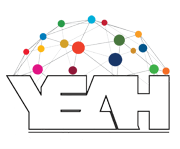Subscribe to RSS Feed (Opens in New Window)
| 2022 | ||
|---|---|---|
| Thursday, April 21st | ||
| 4:00 PM |
Joanna Joy Torreda, Monash University 4:00 PM People see organic agriculture differently. It can be a luxurious necessity while to others it is a way of helping the environment and keeping the body healthy. It is quickly gaining its momentum in the agriculture sector but still far from its full potential. The main objective of this study is to see the different challenges affecting the sustainability of a farm in the Philippines that uses the sixth industrialization, a Japanese management strategy related to organic farming. |
|
| 4:10 PM |
Concurrent Session 3 Cooking to Connect – Food Education Through a Sustainability Lens Jessica Cordaro, University of Wisconsin 4:10 PM Take a bite into a project-based learning experience that takes place in the kitchen. See how cyber school students learn cooking skills, content knowledge and how to create a sustainable future while examining the impact of food on the environment and making recipes to reduce food waste. |
|
| 4:20 PM |
Christopher U. Ezeh, Kswame Nkrumah University of Science and Technology 4:20 PM Soil erosion is a major environmental problem ravaging Anambra, Nigeria. The soil loss was assessed via a RUSLE Model integrated into a GIS environment. The annual soil loss in the area ranges from 0 to over 5000 tha-1yr-1 with an annual mean of 18.9 tha-1yr-1. It shows that severe erosion occurs in the central, southern and eastern parts of the area. The areas within the tolerable erosion rates are about 65.64% (3179.6 km2) of the area while about 28.03% (1357.77 km2) is under extreme soil erosion. However, there are very wide variations in the soil erosion across the area with a standard deviation of 88.6 tha-1yr-1. Thus, the severe soil degradation going on in the area calls for immediate and sustainable intervention to conserve the soil. |
|
| 4:30 PM |
Concurrent Session 3 Connecting a DPSIR model and SDGs to the Sierra Leone Prinia Jack Martinus, Colorado State University 4:30 PM Sierra Leone is a West African country that is home to eight million people. As a developing country with an increasing population, it faces the challenges of creating affordable yet sustainable infrastructure, updating its agricultural sector, and combating the implications of climate change. Focusing on the endangered Sierra Leone Prinia (Schistolais leontica) as an indicator species, these challenges can be assessed through a DPSIR model. Connecting the indicator species, DPSIR model, and Sustainable Development Goals will create appropriate solutions for Sierra Leone to develop sustainably. |
|

